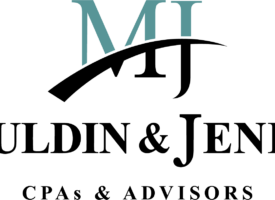by Kate Russell
As the first whirlwind round of CARES Act funding comes to a close, it is a great time to assess, or reassess, your grants management strategies and internal controls. Your organization should take a moment to reflect on what did and did not work in your current grants management program. Take this opportunity to ensure your organization is confident in its grants management strategies, and the processes you have established, to ensure you are prepared for and maximizing future grant funding. When every dollar counts, and every decision is being scrutinized, your organization wants to ensure that it maintains a robust grants management framework and is ready to successfully administer and maximize the value of all grant funds. When grant funding is being made available from a variety of sources, a cohesive and comprehensive grants management program ensures compliant and strategic utilization of those funds. A robust grants management program and solid grant monitoring tools are invaluable in setting you up for future success and removing the fear of awarding agency audits or reviews.
- Strong Written Policies and Procedures
Your organization should have strong written policies and procedures specifically for administering grants. These written documents should include grant manuals, specific desktop guides for recording grant expenditures and revenues, financial reporting processes, and even mapping workflows to easily identify appropriate internal controls and secondary reviews are established. This may also include checklists to ensure that all expenditures are applied to the most appropriate funding source.
- Internal Controls
As you work on documenting your current processing and controls, really consider the internal controls and secondary reviews you have implemented. You should be ensuring that every process has a secondary review. These secondary reviews should consider both financial and program or project requirements. Your review processes should include checklists, written review processes, and all reviews should document the date, title, and scope of the review.
- Integrated Financial and Performance Reporting Responsibilities
Most grant sources require robust financial and performance reporting to ensure grant expenditures are compliant with grant requirements and performance objectives are being achieved. Your organization should ensure there is an integrated financial and reporting framework, with staff who collaborate on reporting preparation, to ensure your grants reporting tells a unified story and communicates your organization’s progress in both programmatic and financial performance metrics.
- Administrative Recovery Models/Indirect Costs
New grants often come with new administrative requirements and additional work placed on financial, procurement, and contracts management staff. Your organization should review your current administrative cost allocation plan or indirect cost rate to ensure it has the flexibility and capacity to incorporate your new funding sources and adequately recover the costs of administering the grant.
- Recordkeeping and Documentation
Your organization should review its supporting documentation requirement and confirm all supporting documentation is maintained consistently and securely. Your organization should ensure adequate supporting documentation is maintained to fully document the need for the cost, any allocations made, and all approvals and reviews are included as part of the supporting documentation. This process should also include random sampling and reviews of currently maintained documentation to ensure compliance with all reporting requirements, both internal and external.
- Internal and Subrecipient Monitoring Tools and Frameworks
Many organizations are contracting out responsibilities or making subawards to assist in the performance of the grant objectives. Your organization is still ultimately responsible to the grant awarding entity, so your organization should have an established robust grant monitoring framework to ensure funds are being spent appropriately. This framework should include support and technical assistance to subrecipients as well as proactive reviews and monitoring of their expenditures, internal controls, supporting documentation, and general compliance environment. Creating monitoring tools that can be consistently applied during each monitoring or review period will ensure a consistent and equitable process across all subrecipients.
A successful grants management function helps your organization ensure it is identifying risks or areas of concern before they turn into findings, material weaknesses, or disallowed costs; it also helps ensure you are maximizing your grant funding and strategically helping to accomplish organizational goals and objectives. Creating and implementing a proactive review process throughout the life of the grant ensures your organization stays on top of all requirements and instills confidence in your grants management process and compliance.
Mauldin and Jenkins has relevant experience and leading practice knowledge in helping your organization develop and implement a comprehensive grants management strategy. Our team has significant experience assisting with the complicated issues of developing compliance procedures and documentation, creating internal grants management frameworks, and monitoring the performance and expenditures of subgrantees, contractors, and other subrecipients. We can offer customized services based on your unique objectives, ranging from assisting in establishing tools and training your team on grants management frameworks to implementing outsourced grants management or administration functions. Regardless of the service delivery model that is right for you, our goals are to mitigate risk, improve efficiency, add value, and reduce overall costs for your organization. If you have any questions, or to learn more about what services we can provide, please do not hesitate to contact us today!




